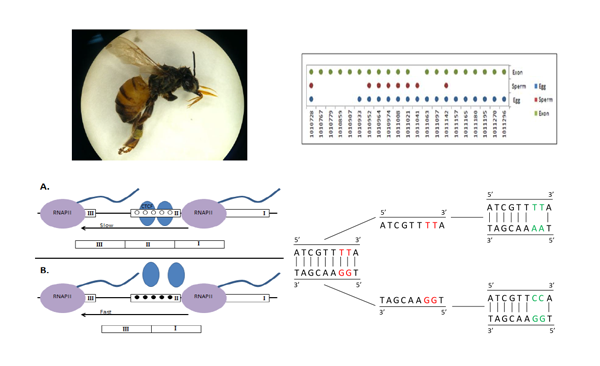DNA Methylation in the Honeybee Genome
Genomic imprinting in the honey bee methylome

The Kin Theory of Genomic Imprinting (KTGI) predicts that imprinting will arise when the reproductive interests of parents differ. In colonies of the eusocial honeybee, Apis mellifera, a queen’s interests are maximized if she monopolizes reproduction in the colony and all of her workers are sterile. Males, in contrast, can increase reproductive success if some of their worker offspring are fertile.Honeybees possess a functional DNA methylation system, and methylation is known to play a role in caste determination. Parent-of-origin specific imprinting via methylation provides a candidate mechanism by which a queen may enforce sterility in her worker offspring; by epigenetically modifying genes required for fertility.We are examining the genome-wide methylation profile of unfertilized eggs and sperm in an effort to identify genes that show significantly differential methylation. Parentally-directed epigenetic modification of genes related to reproduction may be a key mechanism by which eusociality evolves and is maintained.